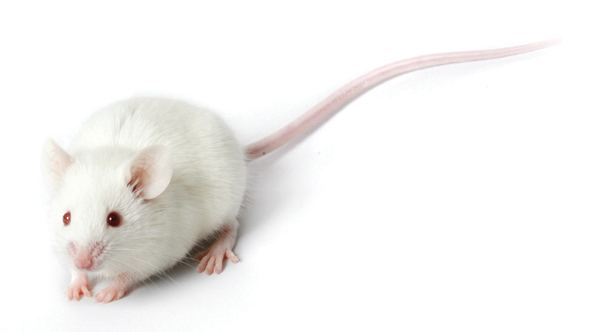A recently published study reported that having a poop transplant to improve your gut microbes may also reverse the signs of aging in your brain. And while this may sound rather gross and even incredulous, you have to agree it’s intriguing. If the scientists are right, then transplanting healthy poop may well be your pathway to a younger brain.
What does young poop have to do with brain health?
As you age, your brain will slow down and be less efficient than it was when you were younger. In science’s quest to crack the aging code, there have been studies that prove young blood can have rejuvenating effects on old mice.
However, the microbiome’s impact on age-related declines has never been clear. Recently, scientists set out to challenge whether young poop can turn back the aging clock.
Poop transplants are not new, but this study is because of their focus on the brain.
Gut-brain link
Science.com explains how we are learning more and more just how important bacteria in our intestines is. “These bacteria influence everything from our daily moods to our overall health.“
Also, the “gut microbiome” changes over the course of our lives. This can have a marked influence on our state of health. Both positive and negative.
The study
The study was conducted by John Cryan at University College Cork in Ireland. He and his colleagues collected fecal samples from young mice and transplanted them into the guts of elderly mice. They then put the old mice through a series of cognitive tests designed to measure memory, anxiety, and learning capacity. subsequent attempts.
The team published these results in the journal Nature Aging.
 The process
The process
Researchers took poop samples from 3 to 4-month-old mice, the equivalent of young adults, and transplanted the samples into 20-month-old animals. This age -by the way- is actually ancient by mouse standards. The scientists fed the poop to the old mice using a feeding tube twice a week for 8 weeks. As a control, old mice receive transplants from fellow old mice, and young from the young.
What they found
The first thing the team noticed was that the gut microbiomes of the old mice given to young mouse microbes started to appear like those of the younger ones. The common gut microbe Enterococcus became much more abundant in old mice, just as it is in young mice, for example.
Changes to the brain
There were changes in the brain as well. The hippocampus of old mice, which is the part of the brain associated with learning and memory, became more physically and chemically similar to the hippocampus of young mice. The old mice were also better at remembering the maze layout on.
None of these positive effects on the brain were reported in old mice who were given the old mouse feces.
Can young healthy poop turn back the clock?
In short, the scientists concluded that if you transplant young poop into an aging body (in this case a mouse body) you will anti-age the brain function.
“It’s almost like … we could press the rewind button on the aging process,” – John Cryan, lead researcher and neuroscientist at University College Cork told Rachel Fritts from Science.com
Other scientists have questioned how long this improvement will last after the transplant.
Arya Biragyn, a molecular biologist at the National Institute on Aging, told Science.com he would have liked the team to have done more to show the microbiomes had actually changed in the older mice. Because the researchers checked for differences in the gut microbiome soon after the transplants, there’s no way to know whether the new microbes had truly moved in or were just passing through.
The question is, will a poop transplant anti-age a human brain?
The study was conducted on mice, not humans, so will it work with humans?
“Cryan himself cautions about jumping the gun to humans, given that the study was entirely based on rodents. Still, he argues, the work offers hope. “The good thing about your microbiome—as opposed to your genome—is that you can change it.” – Science.com
It’s difficult to study
Scientists agree that the human gut microbiota is rich with biological insights, which can help clinical investigators better understand factors that influence both sickness and health. However, despite its huge importance, this area of research is plagued by challenges. Stool samples from a diverse patient set are needed for researchers to gather valuable insights. Yet, collection, storage, and shipping issues constrain the quantity and quality of testable material. A new approach is needed to help researchers more fully explore the clues that live in the intestinal microbiota.
In conclusion
Scientists are optimistic about the benefits of poop transplants on the brain. While the study was only conducted on mice, the results provide hope that the same may hold true for human fecal transplants. However, more studies are needed.
Want to know more about your poop?
If you want to read more about your poop, here are two good reads:
What Your Poop Says About Your Health
Henry Ford Health: Summary of the suggested article
“Most people are at least moderately intrigued by their poop – and the vast majority of us peer into the toilet after a bowel movement to view what our bodies produce. As embarrassing as the subject can be, looking is the right thing to do.“
Paying attention to the color, size, shape, and smell of your poop can tell you a lot about your health. When it comes to poop, “normal” is a relative term.
“Instead of focusing on achieving a certain ideal, you should tune in to changes in what has always been normal for you,” says Radhika Aggarwal, M.D., a gastroenterologist at Henry Ford Health System. There are ranges of normal in terms of frequency, color, size, shape, and consistency that could offer clues about how your body is functioning.
READ THE FULL ARTICLE HERE: What does your poop say about your health?
Fecal Transplant: What You Should Know: Summary of the suggested article
By Susan Bernstein. Medically Reviewed by Carol DerSarkissian, MD
It may sound gross, but a poop transplant is a powerful treatment for serious diseases. A fecal transplant is a procedure that places the stool of a healthy person into the colon of someone who’s ill. Your doctor may call it bacteriotherapy.
READ THE FULL ARTICLE HERE: fecal transplant
References
- https://www.nature.com/articles/d41586-021-02184-4
- https://www.sciencemag.org/news/2021/08/new-poo-new-you-fecal-transplants-reverse-signs-brain-aging-mice?utm_campaign=news_daily_2021-08-09&et_rid=691560654&et_cid=3876824
- https://www.henryford.com/blog/2018/04/what-your-poop-says-about-your-health
- https://www.webmd.com/ibd-crohns-disease/ulcerative-colitis/fecal-transplant-what-you-should-know
- https://www.medicalnewstoday.com/articles/325128#what-is-a-fecal-transplant





![women [longevity live]](https://longevitylive.com/wp-content/uploads/2020/01/photo-of-women-walking-down-the-street-1116984-100x100.jpg)









